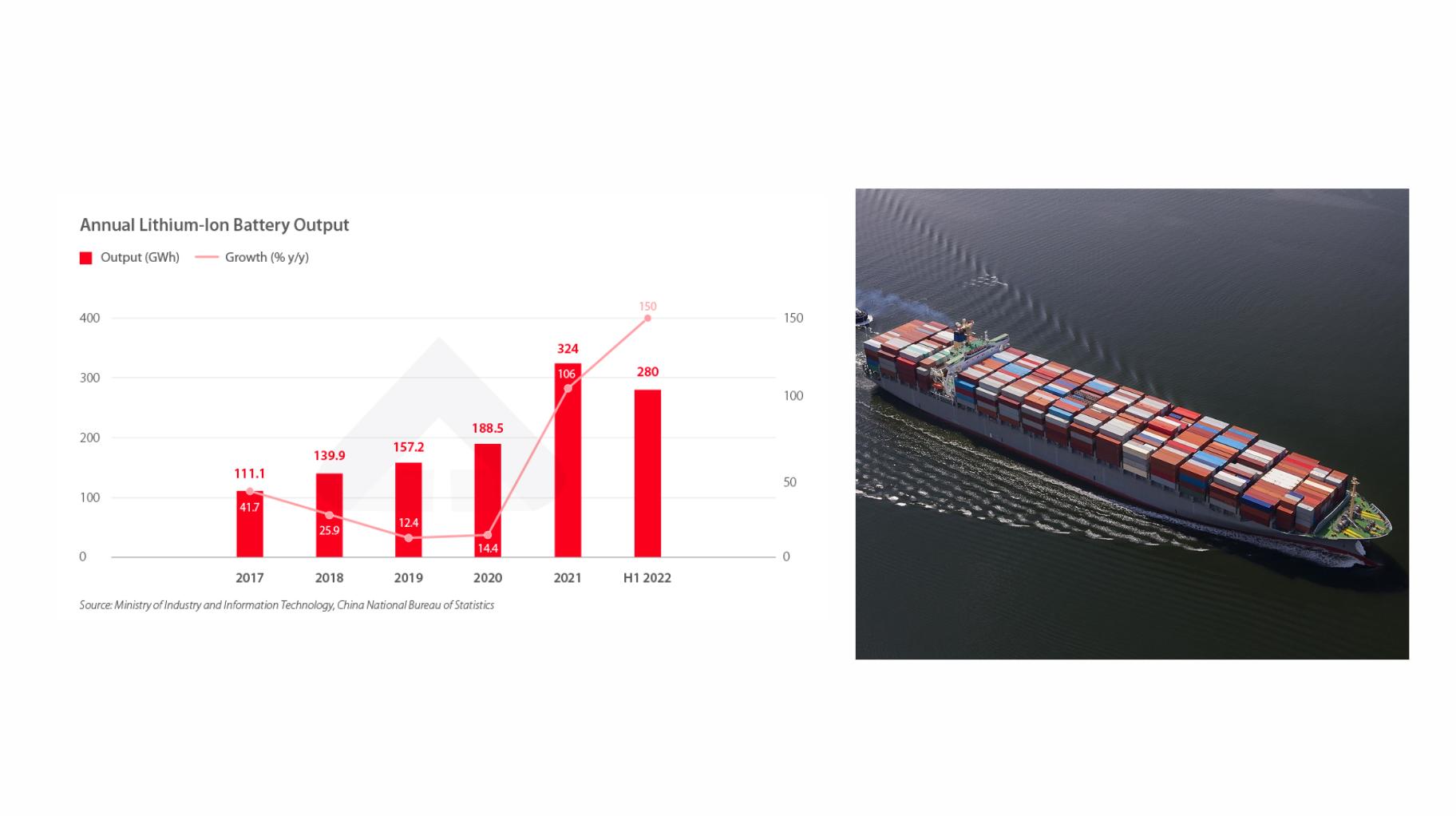
How Dominant Is China’s Role in Lithium Battery Production?
China plays a crucial role in the global lithium battery market, producing a significant percentage of the world’s lithium-ion batteries. This dominance is driven by extensive government support, investment in technology, and strategic control over raw materials. Understanding the current state and implications of this dominance is essential for grasping the future of energy storage technologies.
What is the current state of lithium battery production in China?
As of recent reports, China produces approximately 73% of the world’s lithium-ion batteries, accounting for a significant portion of global capacity. In 2025, China’s output reached around 940 GWh, reflecting a massive increase from previous years. This growth is largely fueled by the booming demand for electric vehicles (EVs) and renewable energy storage solutions. The country not only leads in production but also dominates various segments of the supply chain, including raw material processing.
How has China become a leader in lithium-ion battery production?
China’s rise to dominance in lithium-ion battery production can be attributed to several factors:
- Government Support: The Chinese government has invested heavily in the industry, providing approximately $100 billion in subsidies between 2009 and 2019 to encourage domestic production and innovation.
- Investment in Technology: Chinese companies have focused on developing advanced manufacturing technologies that enhance efficiency and reduce costs.
- Control Over Raw Materials: By acquiring stakes in mining operations globally, particularly in countries like Australia and Bolivia, China secures access to essential raw materials needed for battery production.
- Market Demand: The rapid growth of the EV market has created an insatiable demand for batteries, further solidifying China’s position as a global leader.
These strategies have enabled China to outpace other nations and establish itself as a critical player in the global energy landscape.
What are the major companies involved in China’s lithium battery industry?
Several key players dominate China’s lithium battery sector:
- Contemporary Amperex Technology Co., Limited (CATL): The largest manufacturer globally, CATL holds around 35% of the market share for lithium-ion batteries.
- BYD Company Limited: A significant player not only in batteries but also in electric vehicles, BYD has expanded its influence across multiple sectors.
- Ganfeng Lithium: As one of the largest suppliers of lithium compounds, Ganfeng plays an essential role throughout the supply chain, from extraction to manufacturing.
- LG Chem and Panasonic: While these companies are based outside China, they have established partnerships with Chinese firms to secure their supply chains and enhance their competitive edge.
These companies contribute significantly to both domestic supply and international exports of lithium batteries.
What measures is China taking to address overcapacity in lithium battery production?
In response to concerns about overcapacity and declining prices within the industry, China has implemented new guidelines aimed at regulating growth. Key measures include:
- Scaling Back Production: The Ministry of Industry and Information Technology (MIIT) has advised manufacturers to limit expansion plans that do not align with actual market demand.
- Encouraging Innovation: The government aims to enhance product quality and technological advancements rather than merely increasing output capacity.
- Environmental Regulations: New policies will enforce stricter environmental standards on manufacturing processes to ensure sustainable development.
These measures are intended to stabilize prices and promote high-quality development within the industry while addressing potential oversupply issues.
What challenges are currently facing Chinese lithium battery manufacturers?
Despite their dominant position, Chinese manufacturers face several challenges:
- Raw Material Dependence: Although China controls much of the processing capacity for key materials like lithium and cobalt, it still relies heavily on imports for unrefined resources.
- Price Fluctuations: Global demand for raw materials can lead to price volatility, impacting profit margins for manufacturers.
- Quality Control Issues: Variability in quality can affect product reliability and customer satisfaction, leading to potential reputational damage.
- Geopolitical Tensions: Trade relations with other countries may impact access to markets or raw materials, complicating supply chain dynamics.
Addressing these challenges will be crucial for maintaining China’s leadership position in the global market.
What are the implications of China’s dominance in lithium battery production?
China’s dominance has far-reaching implications:
- Global Supply Chain Control: With a significant share of both raw material processing and finished product manufacturing, China holds considerable influence over global supply chains for electric vehicles and renewable energy technologies.
- Economic Impact: As demand for EVs continues to grow, China’s economy benefits from increased exports and job creation within this sector.
- Technological Leadership: Continued investment in research and development positions China at the forefront of innovation within energy storage technologies.
- Environmental Considerations: The environmental impact of large-scale mining operations and manufacturing processes raises concerns about sustainability that need addressing as demand increases.
Understanding these implications is vital for stakeholders across industries as they navigate a rapidly changing energy landscape.
FAQ Section
Q: How much of the world’s lithium batteries does China produce?
A: China produces approximately 73% of the world’s lithium-ion batteries as of 2025.Q: Which companies dominate China’s lithium battery market?
A: Major players include Contemporary Amperex Technology Co., Limited (CATL), BYD Company Limited, and Ganfeng Lithium.Q: What challenges does China’s lithium battery industry face?
A: Key challenges include dependence on imported raw materials, price fluctuations, quality control issues, and geopolitical tensions affecting trade relations.
Industrial News
China’s dominance in the global lithium-ion battery market continues to grow amid rising demand from electric vehicle manufacturers and renewable energy sectors. Recent government regulations aim to curb overcapacity while promoting technological innovation within the industry. Despite facing challenges such as reliance on imports for raw materials and fluctuating prices, Chinese manufacturers remain at the forefront due to substantial investments and strategic control over supply chains globally.
LiFePO4 Battery Expert Views
Dr. Emily Carter, an expert on energy storage systems, states, “China’s strategic investments across various stages of the lithium supply chain have solidified its position as a leader in this critical technology area. However, sustainability concerns must be addressed as we move towards a greener future.”
